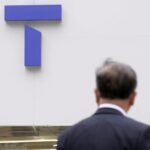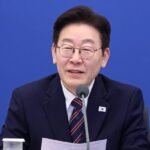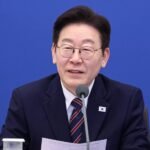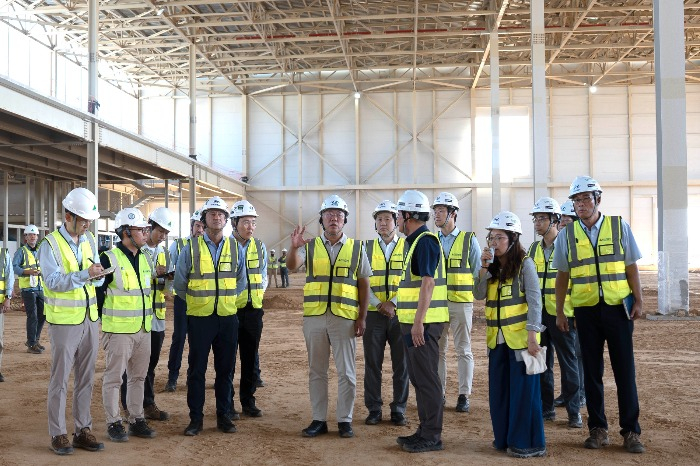
Hyundai Motor Group, South Korea’s largest automaker, is setting its sights on next-generation energy ventures in Saudi Arabia, expanding its business footprint in the Middle East beyond automobiles, its chairman said during a meeting with the kingdom’s crown prince.
“We look forward to expanding collaboration in future energy sectors, including renewable energy, hydrogen, Small Modular Reactor (SMR), and nuclear energy,” Chairman Chung Euisun said Monday in Riyadh during his one-on-one meeting with Crown Prince Mohammed bin Salman, according to the company.
The discussion marked their first private meeting, though the two had previously met twice, including during the crown prince’s 2022 visit to Seoul.
Hyundai said the talks covered the automotive industry, smart cities and future energy sectors under Saudi Arabia’s Vision 2030.
“The Group deeply understands the meaning and importance of Vision 2030,” Chung said, indicating the Korean company’s strong commitment to Saudi Arabia’s giga projects with its competitive business capabilities.
The meeting underscored Hyundai’s ambition to deepen its presence in the Middle East’s largest economy, once considered a land of opportunity for South Korea’s industrial pioneers.
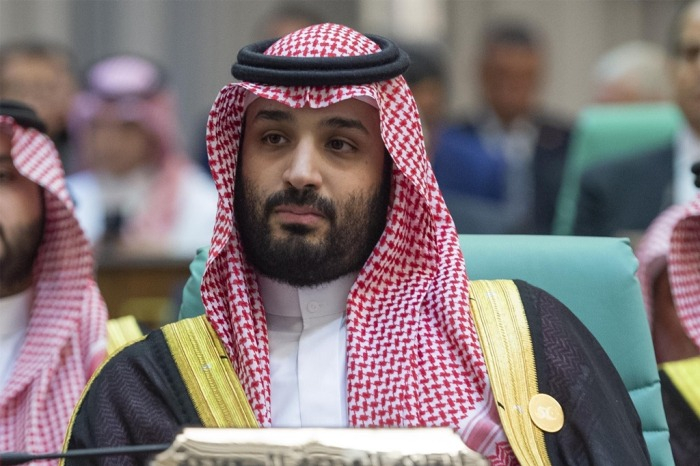
HYUNDAI MOTOR’S FAST ASCENT
Chung met the crown prince a day after visiting the construction site of Hyundai Motor Manufacturing Middle East (HMMME), the company’s first auto production base in the region.
The joint venture, which is 70% owned by Saudi Arabia’s Public Investment Fund and 30% by Hyundai, broke ground in May at the King Salman Automotive Cluster in Riyadh.
Set to begin operations in the fourth quarter of 2026, the facility will produce 50,000 vehicles annually, including electric and internal-combustion models.
Built on a 400,000-square-meter site, it will assemble cars using completely knocked-down (CKD) kits sourced from abroad.
Chung told the crown prince that Hyundai would consider expanding production capacity at the HMMME plant depending on market conditions.
José Muñoz, Hyundai Motor Co. president and CEO who accompanied Chung, said the new facility “demonstrates Hyundai’s long-term commitment to the Middle East’s largest auto market” and will play a strategic role in the company’s global midterm plan while supporting Vision 2030.
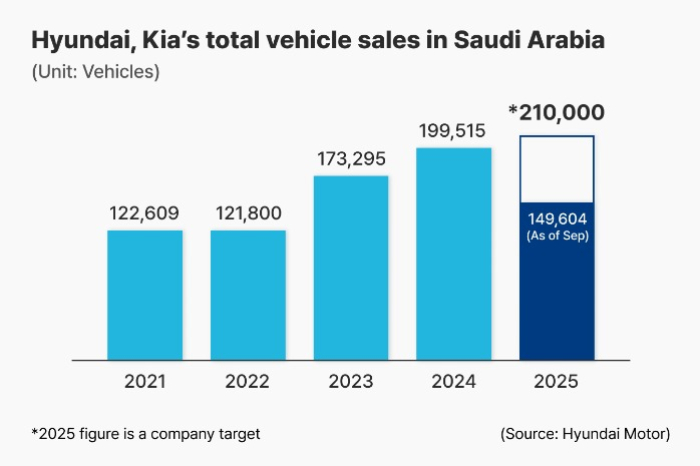
Saudi Arabia is the Middle East’s biggest automotive market, accounting for roughly one-third of the region’s 2.5 million vehicle sales last year.
Hyundai Motor and affiliate Kia Corp. sold a combined 199,515 vehicles in the country in 2024, up from 173,295 the year before, according to company data.
In the first nine months of this year, the two brands sold 149,604 units, an 8.5% increase from a year earlier, with full-year sales expected to reach about 210,000 units, up nearly 6% from 2024.
PUSHING AHEAD WITH VISION 2030 AND FUTURE ENERGY
Hyundai Motor Group is expanding cooperation with Saudi institutions and companies in mobility, smart cities and energy, aligning its strategy with the kingdom’s drive to diversify its economy away from oil.
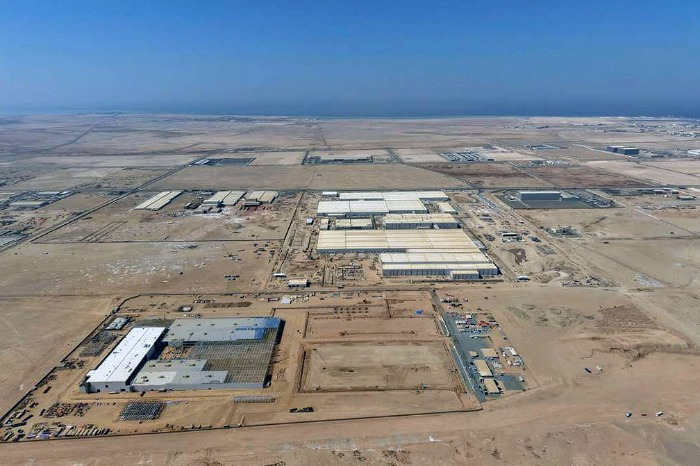
The automaker plans to leverage its hydrogen technology to help Saudi Arabia develop a clean-energy ecosystem.
Earlier last year, Hyundai Motor acquired the hydrogen fuel-cell business of its affiliate Hyundai Mobis Co., consolidating its control over the group’s hydrogen vehicle and energy value chain.
The move came in line with the Korean auto group’s vision to make hydrogen a core growth engine.
In Saudi Arabia, Hyundai signed an agreement with NEOM last year to introduce eco-friendly mobility, successfully testing its hydrogen-powered Universe FCEV bus on NEOM’s mountainous routes earlier this year.
Kia, Hyundai’s affiliate, is also working with Red Sea Global to provide electric passenger vehicles and technical training under a pilot project supporting the oil kingdom’s sustainable tourism industry.
In addition, Hyundai Motor Group is partnering with the MISK Foundation, founded by Crown Prince Mohammed, to nurture local youth talent and explore smart-city collaboration opportunities.

